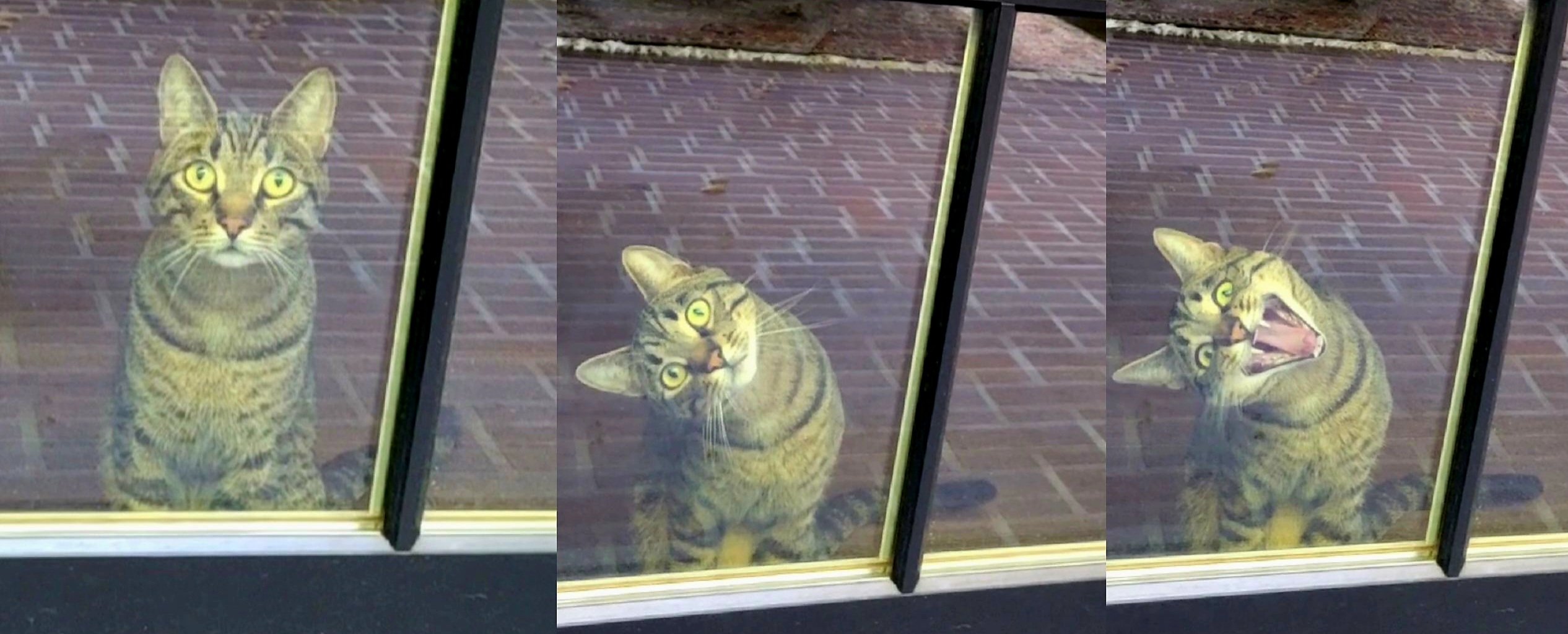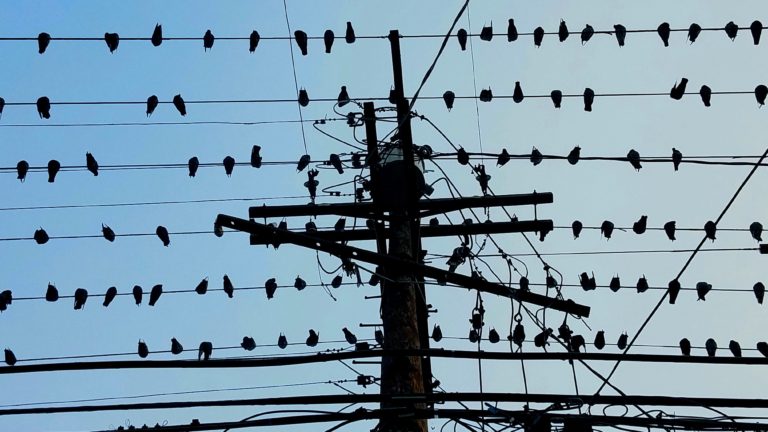Abhishek Udaykumar – Fiction
Mauna walked around the park thrice before going back home. She stood in her balcony and watched families and bachelors...

Adult Friends
Mauna hadn’t been out in a month. Except to the grocer’s, the pharmacy and the ice-cream shop. The cold didn’t demand much. And life was simple with a different sweater every week. She was busy indoors, writing her last journal for the year. After months on the field, she felt content with spending her evenings on the terrace, listening to the raspy city streets. It wasn’t till the previous evening that she decided to attend a literary meet. It was a motley group that talked about books. Most of its people were older by ten years at least. Except for one girl who was around thirty like her. But it was their mutual interest in snakes that got them talking. They spent the following hour at a diner that looked like it was out of Sherlock Holmes. Ridhima took her number and promised to call the next day and plan a more extensive meeting. Mauna woke into Saturday with an old serenity, much like a girl sipping tea after a day at the pool. She had barely spoken more than a few words that month, until the previous evening, and the feeling of speech made her long for more.
She chewed her French toast listening to country blues, and then shook off the mood and switched on the news. It helped her get back to work. She’d lived in the jungle the whole of last year, her phone barely received any tower there and the food lacked salt and protein. She had returned thin and colourless, like a pale leaf clinging to its bark. The following year was for publication. She had published five journals starting February. Her most recent volume studied the patterns of the Russel Viper in the territory of the King Cobra. Her research was aimed at investigating the nocturnal habits of Vipers and its impact on the Cobras’ mating. Mauna sat on the computer and looked out of her room. It wasn’t a romantic city by any stretch of imagination. She was often confused about whether she preferred the forest. It was hard to ignore loneliness in the city and easy to forget people in the mountains. But she knew she needed a companion before she went back to the field.
It was eleven-thirty. She had hoped to hear her phone ring by ten. What if Ridhima had already made plans for the weekend? She didn’t think she’d meet her on a weekday. Mauna regretted that she didn’t take her number. Perhaps Ridhima had agreed to meet in the heat of the moment. Maybe she’d forgotten her already. She didn’t seem like a regular at the literary meet and perhaps it was but a passing hobby. It was for Mauna. She had seen a poster of the literary group outside a coffee shop and had decided not to work that evening. But Ridhima wasn’t merely intrigued by snakes. She had spent the summer of that year at a snake awareness camp organized by an NGO, clicking photographs and writing articles for them. Her corporate job had restricted her from venturing out and she had decided to take a sabbatical. Mauna had imagined that they would go out for lunch and then to the park. If Ridhima wanted, she could come over and have a cup of hot chocolate with her.
The morning hobbled into a breezy afternoon. A subtle fragrance of sandalwood filled her house after a long shower. She had left the phone outside the bathroom and had plugged it into a speaker. She checked it inadvertently as she dried her hair. It was past lunchtime and she didn’t have anything prepared. She toasted some sourdough and made a sandwich out of fried okra and potato. It wasn’t the happiest of meals and she satisfied herself with a healthy bowl of vanilla yoghurt. She sat at her desk and sighed. She had spent considerable time last year learning the local language to build relationships with the forest dwellers. The dialect was similar to her native tongue but difficult to remember and keep up with. A year away from the mountains had spoilt her and though she longed for the forest, she had grown wary of hard work, patience, inadequate information, lack of entertainment and disillusion. There were times when her conviction felt like her own invention.
By four she shut her computer and went up to the terrace. She thought she’d read for a while before getting a milkshake. The anticipation of activity helped her overcome the severity of routine – which often resembled a desperate form of actualization. The clouds had formed into a stainless-steel plate that obscured the rain. She thought about a boyfriend she had some years ago. It was her first year as a research scholar, the only time she felt like she was still in college. They had regular classes, eight hours a day, five days a week, the only respite was library study on Saturday – which she spent with him. They weren’t from the same class, but it had seemed like their only difference, and they decided to pursue their research in the same region. They had even considered living together until their field work began, but Mauna said she needed her space. She wondered now if living together would have helped her see their differences earlier. And if she would have moved to the field sooner if she had known. They were together for six months; it was the only relationship in her life so far. She had never understood why he wanted to work close to her, but she realized later that he didn’t have the ability to endure his loneliness. And she was unwilling to sacrifice hers for someone who was yet to catch up.
She closed the book and flipped her phone unconsciously. She didn’t expect to make a friend outside her niche. It was an occupation hazard she had accepted. Conservation was hardly known to commoners whose ordinary lives seemed ludicrous to researchers. She didn’t long for a friend as much as a participant in her world – a teammate and confidant. Ridhima was intelligent and brimming with passion, though less with experience. She seemed to look up to Mauna and absorb her stories and judgement about the land. It felt great to have a human to speak to rather than a field recorder and a local who barely understood her.
She remembered that the poster outside the coffee shop had a number on it. She decided to look it up while she was out. It was half past five when she found herself staring at the poster and sipping a tall banana shake, regretting that she didn’t get strawberry, and wondering who Armani was. She didn’t remember meeting any such person in the group. Perhaps he was an old member who hadn’t shown up. She saved the number and looked at it several times. She would have to make up a reason. It was weird to call someone she didn’t know and ask them about a person she’d just met. She decided to wait another hour for Ridhima’s call. Maybe she wouldn’t need an excuse after all.
Mauna walked around the park thrice before going back home. She stood in her balcony and watched families and bachelors lingering in theirs, scarcely meeting each other’s eyes. Dark and dry, the evening hung itself out like a roll of film, inverting everything into deep blue negatives. She had an urge to do something. Go somewhere, laugh, flirt, be heard. She had always been a staunch student. Academia had been her world until she hit the field. Ground research had not featured on her list of options when she finished her masters but a friendly teacher had advised her against burying herself in reading. He had said that everything that could be discovered through books had reached a stage of ‘recycling’, and that anything new could only emerge from the field. She sulked. She couldn’t remember the last time she had been naked with someone. The thought caused her much agony. She had to sit down.
She dialled Armani’s number. It was a while before she finally pressed the call button. The phone rang for what felt like an hour. She held the phone away from her as though this could make it less real. The world outside was the same. It felt outrageous. She was almost relieved that he didn’t pick up, when a voice sprung out of the device. It was businesslike, odd for a Saturday evening.
‘Hello? Hello?’
Mauna smiled nervously and tried to find her voice, as though he was in front of her. But she could not. Not when she didn’t know what her words would be, or how they would be understood. She hung up and hid the phone in her pullout, flipping the pages of her first-year soil study journal and feeling the heat between her lips. She was aware of a dampness building in her armpits and streams of sweat wetting her scalp. The idea of hearing his voice again felt more ridiculous than calling him about Ridhima. She heard his quick tone saying ‘hello’ and felt stupid. The house was but a concrete cave with wooden cabinets and panels covering its exits. Suddenly there was either too much light or excessive darkness filling the world.
She dragged herself up to the terrace and felt instantly lighter. As though a part of her had suddenly reappeared in the forest. She watched the city untie its laces and put away its shoes, as the worn-out bulbs kept the neighbourhood alive. The wealthier bungalows were subdued in cosmetic incandescence – their slender lights glimmering like slices of cantaloupe draped in creamy white curtains. She sat against the edge and listened to the breeze. Perhaps it was time to go back. If she submitted her journal by the end of the year, she would buy herself enough time to get her permits in order. She had to make friends where it mattered. And though it didn’t feel like the absolute truth, her circumstances demanded that perception of her. She would never understand why people said things they didn’t mean, and made promises they couldn’t keep. It hurt her to think that hope was so easy to create, but so difficult to face. She felt tired. She had exercised her imagination beyond her capacity. It was seven-thirty. She got up and looked at the metallic sky, and wondered what she’d say to Ridhima if she called.
You can learn more about Abhishek by clicking on the bio: https://thievingmagpie.org/abhishek-udaykumar-bio/



